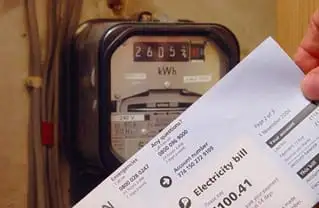U.S. Consumer Satisfaction Dips
Gateway To North America's Electrical Industry -
MILWAUKEE, WI -- Soaring utility prices and corporate cutbacks took their toll on consumer satisfaction in the first quarter of 2001, and the American Customer Satisfaction Index fell 0.6 percent.
It's the second straight dip in the index, which measures customer sentiment, complied four times a year by the University of Michigan Business School. At the end of April, the measure of consumer satisfaction stood at 72.2 out of a possible 100.
The index had steadily improved since hitting a low of 70.7 four years ago.
Consumer satisfaction declined 8 percent for energy utilities with The Southern Co. receiving the highest score of 80 and bankrupt Pacific Gas & Electric getting 49 percent, the lowest score ever expect for the Internal Revenue Service.
"There is no mystery in explaining ACSI scores for a utility," said Claes Fornell, director of the university's National Quality Research Center. "Reliability supply and delivery, good customer service and reasonable prices lead to high customer satisfaction."
PG&E's rating fell 33 percent since last year because of the electricity shortage and rolling blackouts affecting California.
"Many energy utility customers, especially those in California, are clearly reacting negatively to energy supply and price problems," said Andrew Morrison, a utilities industry expert for Market Strategies.
Among other industries, customers were 4 percent less satisfied with parcel delivery/express mail; postal service and airlines; telecommunications and television broadcasting each dropped about 3 percent, and hotels and hospitals slumped more than 1 percent.
Southwest led airlines with 70 percent satisfaction and Continental was second with 67, an 8 percent improvement. Bell South was the top rated telecommunications company with a 74 and Qwest (US West) was worst scoring with just 61.
Marriott led hotels with a score of 77, up 4 percent from last year.
Consumers had no change in opinion of newspapers, but satisfaction with the motion picture industry rose more than 4 percent.
"It's interesting a few companies -- Marriott, Continental and Southwest Airlines, for example -- are finding ways to buck the trend by increasing customer satisfaction at a time of general declines," said Jack West, past-president of the American Society for Quality.
"When price goes up without a commensurate increase in value, there's only one way for the ACSI scores to go, and that's down," he said.
Related News

During this Pandemic, Save Money - How To Better Understand Your Electricity Bill
NEW YORK - Especially during these tough economic times, facility executives who don’t understand how their power is priced have been disappointed when their energy projects failed to produce expected dollar savings. Here’s how not to be one of them.
Your electric rate is spelled out in a document called a “tariff” that can be downloaded from your utility’s web page. A tariff should clearly spell out the costs for each component that is part of your rate. Don’t be surprised to learn that it contains a bunch of them. Unlike residential electric rates, commercial electric bills are not based solely…




